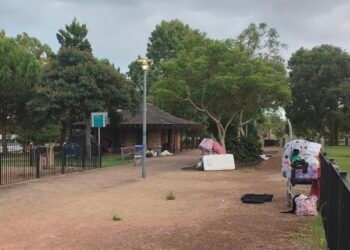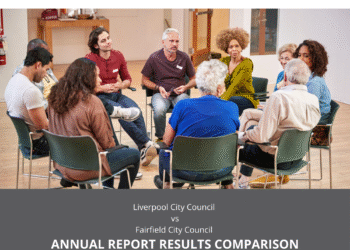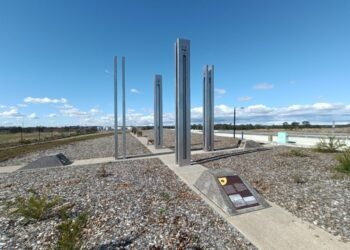It has been interesting to watch local social media groups go into absolute meltdown over the weekend regarding a Daily Telegraph article outlining $20,000 in aid to Lebanon by Liverpool Council on behalf of ratepayers. The feedback has been overwhelming, and it’s been quite some time since I’ve seen such a public reaction in Liverpool. However, behind the public’s allegations of an inappropriate use of funds and constant reminders of Council’s abysmal “Back to Basics” performance regarding roads, rates and rubbish, lies a much bigger story.
The Misleading Statement
Councillor Richard Ammoun initially introduced the urgency motion for $20,000 support to Lebanon to Council. During debate, and before the matter was voted on, he made a very misleading comment to his fellow Councillors that neither State nor Federal Government had contributed anything to Lebanon. However, Department of Foreign Affairs and Trade (DFAT) records show Australia had already implemented a comprehensive aid package including:
- Substantial additional funding bringing total humanitarian assistance to $124.5 million
- $26 million allocated through UN agencies and the International Red Cross
- $11.5 million specifically designated for refugee programs in Lebanon and Jordan
To view the entire motion as it was bought forward click here
Like any Australian taxpayer, I was furious—not about the $20,000, but rather Councillor Ammoun’s comments as a Leader of our Community that we had contributed nothing. Being of Lebanese heritage himself, Ammoun introduced the motion without any knowledge of what Australia had already contributed.
I was also bewildered by the Mayor’s reaction immediately following Ammoun’s statement; the Mayor made no effort to correct him, which I personally found disrespectful as an Australian.
The Aftermath
The next day, I wrote a letter of complaint to Acting CEO Jason Breton, detailing Councillor Ammoun’s actions as false and misleading. I alleged that Councillor Ammoun had neglected to demonstrate a reasonable degree of care and diligence in bringing the motion and carrying out his functions as a Councillor by not acknowledging Australian efforts. Council’s reply over a month later noted that Ammoun and Breton had engaged in an informal discussion, and that Ammoun had admitted his mistake and seconded a motion to congratulate the Federal Government for their contribution to Lebanon in December’s meeting. Council believed that the matter was resolved.
Outstanding Concerns
The fact that I am writing this post indicates that I remain quite upset about the matter. Ammoun should have:
- Thoroughly researched the matter before asking for money that Liverpool Council can’t currently afford
- Made a public apology to our Community and all hardworking taxpayers who have made significant contributions to providing financial relief to Lebanon

Putting It in Perspective
I want to be clear, contrary to public opinion, I am not cross about the $20,000. Deputy Mayor Harle was correct in his comments during debate, $20,000 is a drop in the ocean compared to what we have contributed as a country. We all need to get a bit of perspective—it works out to around 20 cents per ratepayer, its not ideal but I think we have all learnt a valuable lesson.
While I have been critical of Richard Ammoun to this point, I must also acknowledge that his emotion in introducing the urgency motion to Council was compelling and I think his heart was in the right place.
The reverberations of this decision extend beyond immediate financial implications, offering a crucial lesson in local government’s role and responsibilities. While Liverpool proudly stands as one of Australia’s most culturally diverse communities, the distinction between international humanitarian support and local community governance must be clearly maintained.
International aid and diplomatic relations rightfully remain the domain of our Federal Government, which has demonstrated its commitment through substantial, coordinated assistance programmes. Local councils, as custodians of community resources, must prioritise their primary mandate: serving the immediate needs of local residents.
This incident underscores a fundamental principle: while our community’s strength lies in its multicultural fabric and global connections, council decisions must focus on fostering local unity and meeting community needs. The admirable impulse to show international solidarity should be channelled through appropriate federal channels, where Australia can speak – and act – with one voice.



























